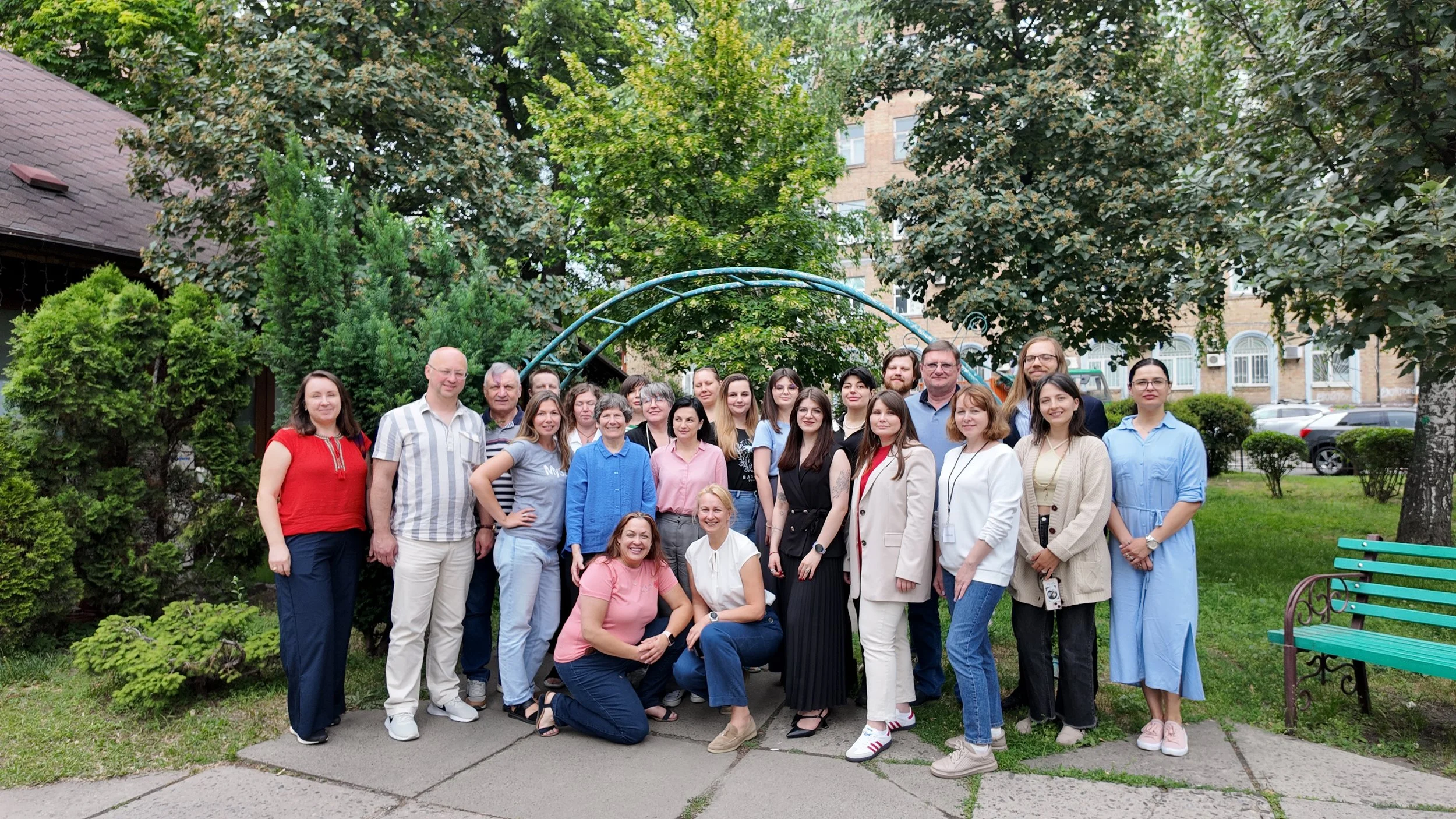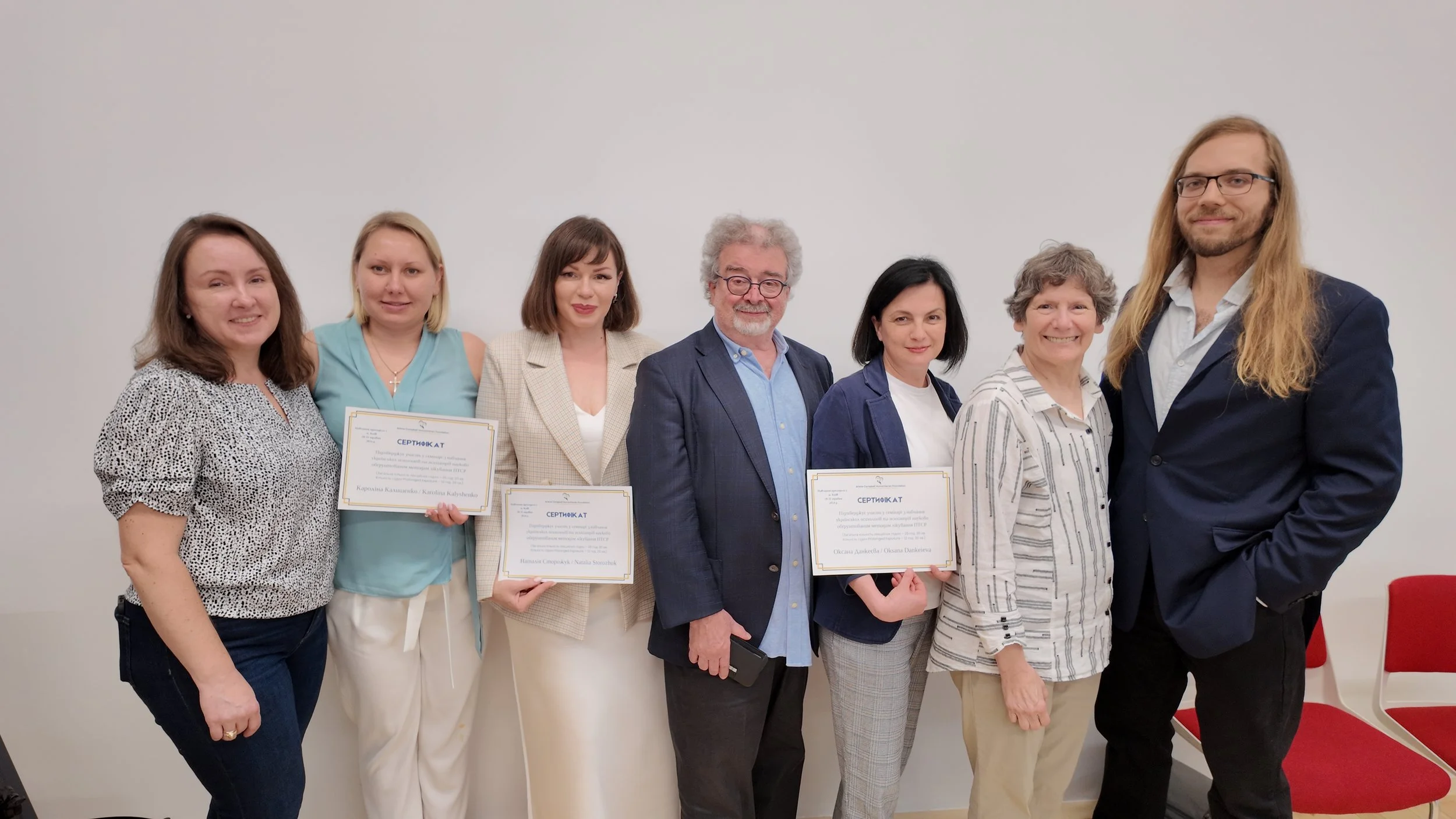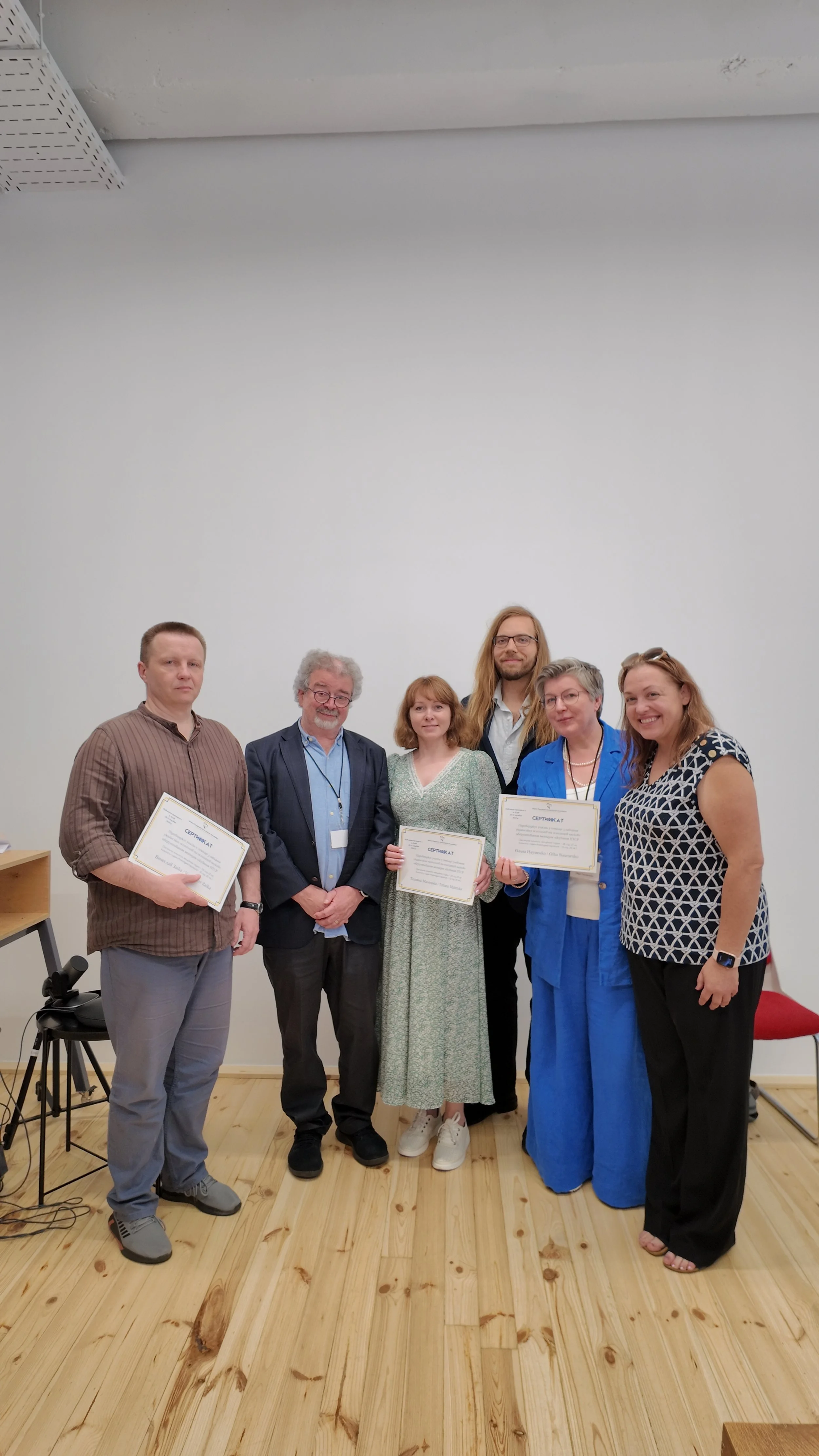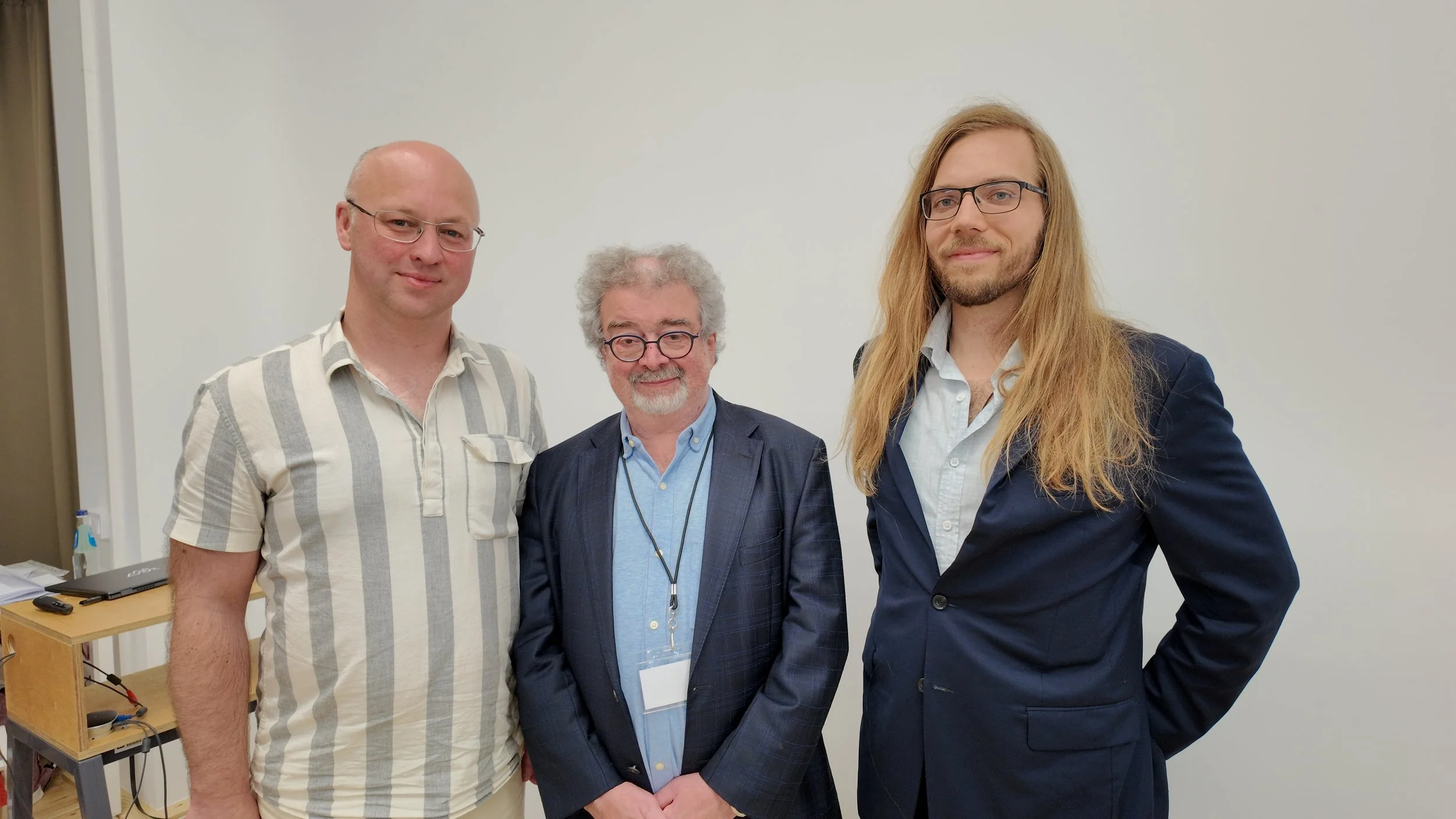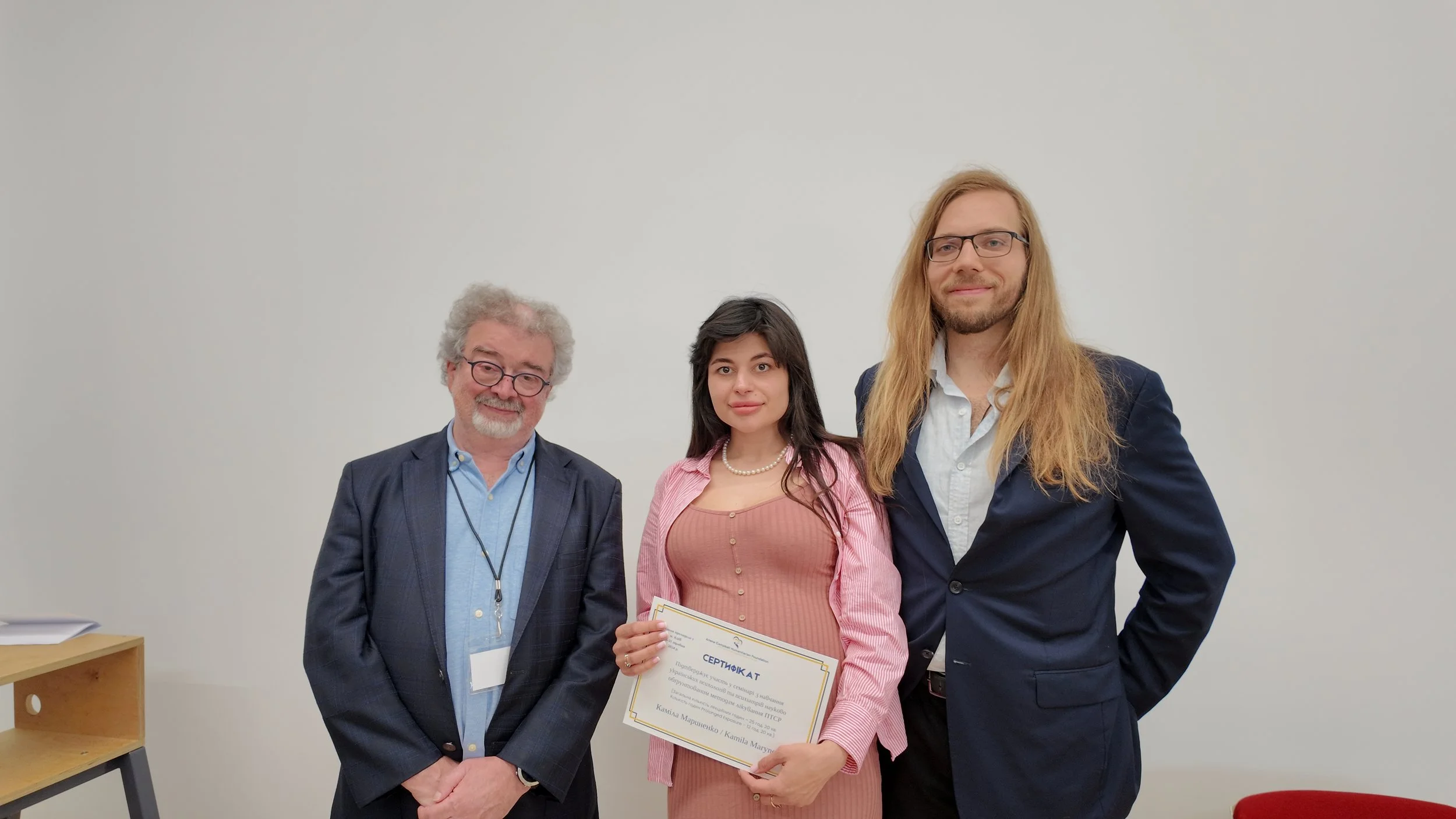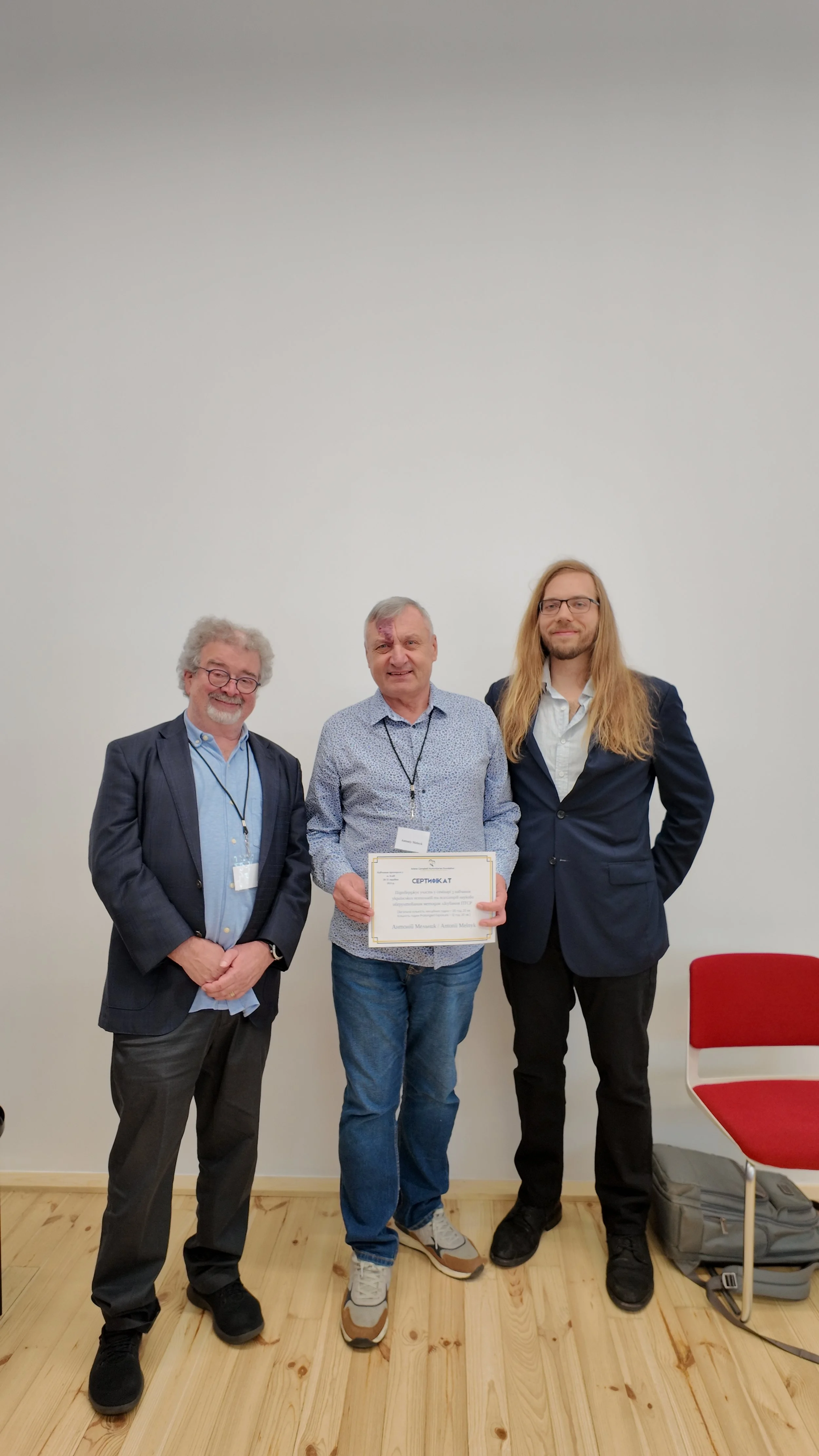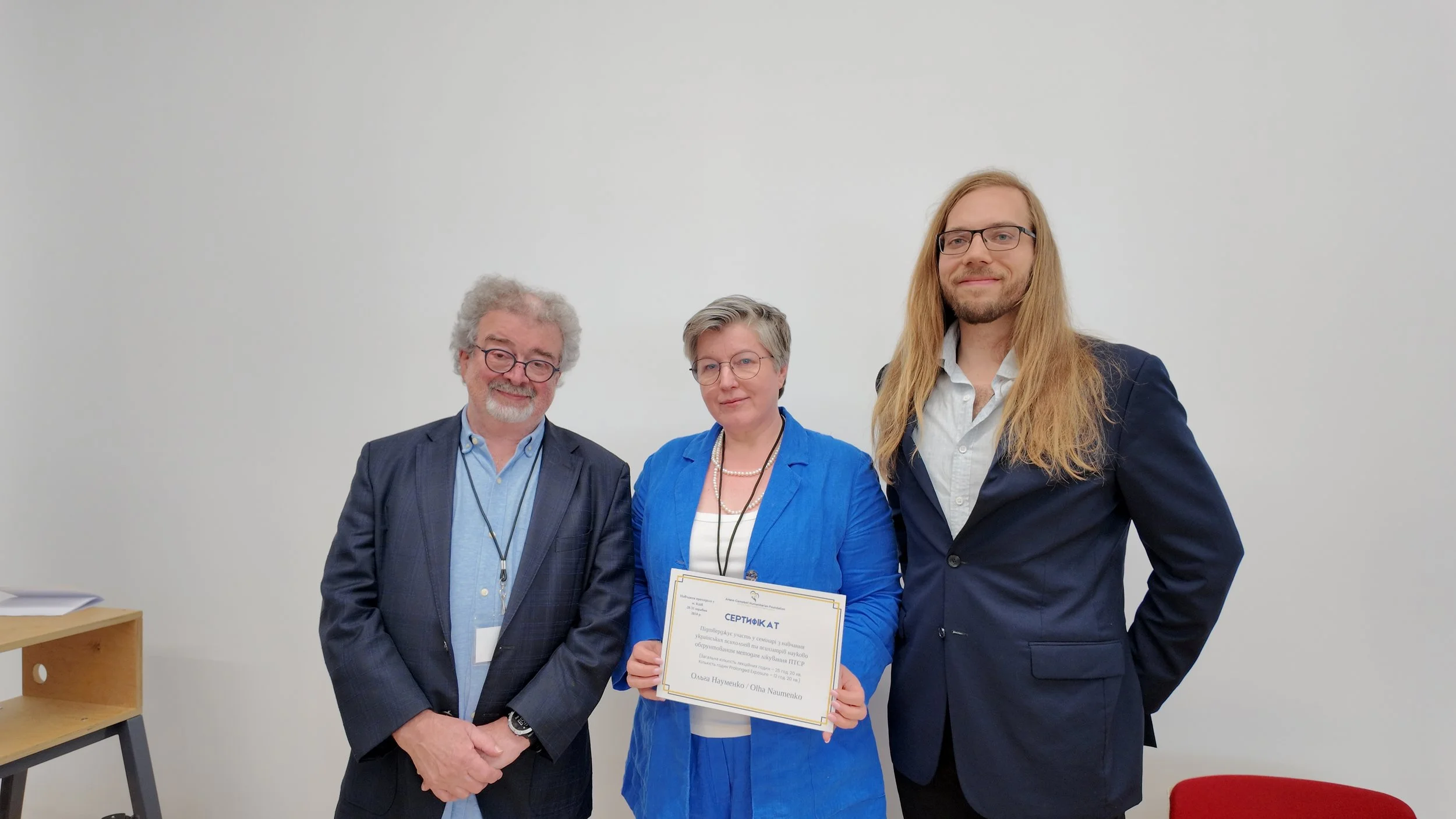Press Release - June 14th, 2024
KYIV, UKRAINE (June 14, 2024) -- Deep in the heart of Ukraine, people committed to helping men and women recover from the horrors of war gathered in Kyiv recently to review new methods of helping Ukrainians manage their post-traumatic stress disorder (PTSD) challenges and ways to improve clinical outcomes.
For Dr. Merzeniuk Tetiana, a psychologist working in the 17th & 18th mixed psychiatric departments of the Vinnytsia Regional Clinical Psychoneurological Hospital named after Acad. O.I. Yushchenko, it was an important moment in her 11-year career. She is now one of the clinicians working in Ukraine who will be mentored by American experts and trained in implementing best practices.
Coordinated by the Arlene Campbell Humanitarian Foundation, a U.S.-based nonprofit that has delivered millions of pounds of medical supplies to Ukrainian hospitals, with funding from the United Methodist Committee on Relief (UMCOR), the humanitarian relief and development arm of The United Methodist Church, the four-day conference in Kyiv featured American PTSD experts sharing evidence-based PTSD best practices with Ukraine’s active duty psychologists, psychiatrists and veterans’ services mental health doctors.
“Techniques and methods of treating PTSD are constantly changing, just like there are new surgical techniques being developed all of the time,” said Lena Denman, executive director of the Arlene Campbell Humanitarian Foundation. “In a country with no governing body over psychiatry or psychology, there is a serious lack of resources.”
“Bringing in world class experts from the U.S. to help enhance the Ukrainian mental health infrastructure beginning with a small cohort of clinicians provides us with data on the efficacy of teaching new evidenced-based practices in Ukraine,” she stated.
During the conference clinicians discussed evidenced based practices with treatment recommendations understanding the specific Ukrainian cultural and current conflict situation. The clinicians that were chosen to attend had backgrounds in clinical behavioral therapy (CBT) and are medical physicians.
MENTOR
Beginning in July 2024, experts from the U.S. will mentor attendees for a period of six months online as they demonstrate how they have implemented the knowledge gained and placed it into practice. Clinical assessments will be conducted to demonstrate that the patient care is improving, and symptoms are abating. Participating clinicians are working at a rehabilitation facility in Vinnytsia.
ANGER
Dr. Greg Muller, an assistant professor and licensed psychologist in the Department of Psychiatry and Behavioral Sciences at Dell Medical School of the University of Texas at Austin, discussed prolonged exposure and the need for patients to practice self-care. Prolonged exposure is of acute importance in the Ukrainian context, as many men and women have been at war since 2022. During the war in Vietnam, the U.S. often rotated men out of combat after a 9 month tour. In Afghanistan and Iraq tours of duty were often 6-9 months.
People who have experienced prolonged exposure often feel anger. A photo shared by Dr. Muller illustrated how many emotions are just beneath the surface of anger. Deeper feelings may include loneliness or anxiety or even contempt. A patient’s anger must be validated.
Dr. Muller stated that anger must be normalized in the context of PTSD and is a reaction that comes up during the emotional processing of trauma. The patient should be told that anger can be useful and is designed to protect us, but anger can also be unhelpful in holding patients back and can keep them stuck, unable to get what they want. In addition to anger, patients’ avoidance issues should be validated by their therapists.
When addressing anger and irritability the first point to inquire about is the patient's sleep. The clinician must delve into the patient’s history. Does the patient have pre existing problems with distress tolerance, emotional regulation, their interpersonal relationships or impulsivity? Does the patient have earlier trauma that has not yet been addressed?
Dr. James Abelson, professor and director emeritus of the Anxiety Disorders Program at University of Michigan’s Department of Psychiatry, stated that it is important for the clinician to distinguish if their patient has a simple or more complex case of PTSD. Dr. Abelson stated that clinicians should consider implementing the use of mood stabilizers and newer antipsychotics.
Another fascinating point was that Ukrainian culture often does not address the topic of anger management as is popularly discussed in the West. Introducing techniques to the patient on how to manage anger is very important. Introducing patients to why we feel anger and how anger is a protective mechanism is useful. Patients should also be told the ways in which anger can be unhelpful.
Strategies were also presented for how to help patients target feelings of guilt, shame and depression. Selective serotonin reuptake inhibitors (SSRIs) can be utilized as pharmacological resources for patients.
SELF CARE
Therapists must work to take care of their own mental health, including practicing self-care, advisors said.
One chart provided to our clinicians was a reminder that patients should each day eat three meals, sleep 7-9 hours, practice daily pleasant activities, exercise, and practice slow, deep and rhythmic breathing at five minutes or more each day. Mindful thinking practices were also discussed. This routine would work well both for the civilian and military populations.
SLEEP
Dr. Abelson addressed also the necessity of sleep for patients, telling our clinicians that patients will require social support. If sleep is disrupted, we want to normalize it and to think first about environmental factors and if the person has a safe place with social support and daytime routines.
MEDICATIONS
Dr. Israel Liberzon, department head of Texas A&M College of Medicine’s Department of Psychiatry, was very open about his own experience treating veterans and even discussed the one time he had a patient who committed suicide. He discussed the drugs he found most useful in his treatment practice and why he considered them effective.
Two attendees who are clinicians were from Forest Glade, the clinic on the outskirts if Kyiv which has a special dispensation from the Ukrainian government to deliver the psychedelic drug of Ketamine. Zelensky previously signed into law the legality of pot as many veterans are using it to self-treat their PTSD symptoms. Ketamine and other psychedelics are not currently legalized in Ukraine, and the United States has recently engaged in a robust conversation about the usefulness of such drugs for treating American veterans' PTSD.
We know that CBT and SSRI treatment is effective in addressing PTSD. Dr. Greg Muller shared he is impartial on whether the outcome of the current trials of psychedelic drugs will be useful in the U.S. This conversation was recently highlighted by the FDA considering the approval of MDMA.
“It was amazing to see the level of classroom participation and student engagement,” said Lena Denman of the ACHF. “Dr. Liberzon said multiple times that we had a very good group who clearly wanted to learn. They demonstrated consistent interest and the practicality of their questions to our professor team demonstrated the clinicians were eager to apply what they were learning in our seminar in their practices.”
———
Your continued support and grant funding from the United Methodist Committee on Relief has allowed us to also support veterans mental healthcare. In May 2024 we trained 19 psychologists and psychiatrists on the most effective methods of treating prolonged exposure. For 6 months, Dr. Greg Muller of the University of Texas at Austin is providing continued supervision to our trainees in online sessions that meet weekly. Therapists bring their concerns of how to best treat patients, and Dr. Muller provides assistance with their course of treatment. The supervision oversight specifically teaches the mental health treatment technique of prolonged exposure. Using this technique, a patient is taken through their past trauma to lessen the impact of post traumatic stress.
The Arlene Campbell Humanitarian Foundation continues to work closely to support 5 mental health clinicians in a hospital in Vinnytsia, Ukraine. Every month they submit reports to us on how the training received in May is benefiting their clinical practice, helping internally displaced persons, civilians, soldiers and veterans get through the traumas inflicted by the current ongoing war. We are working to ensure that our aid in Ukraine creates a lasting impact.

